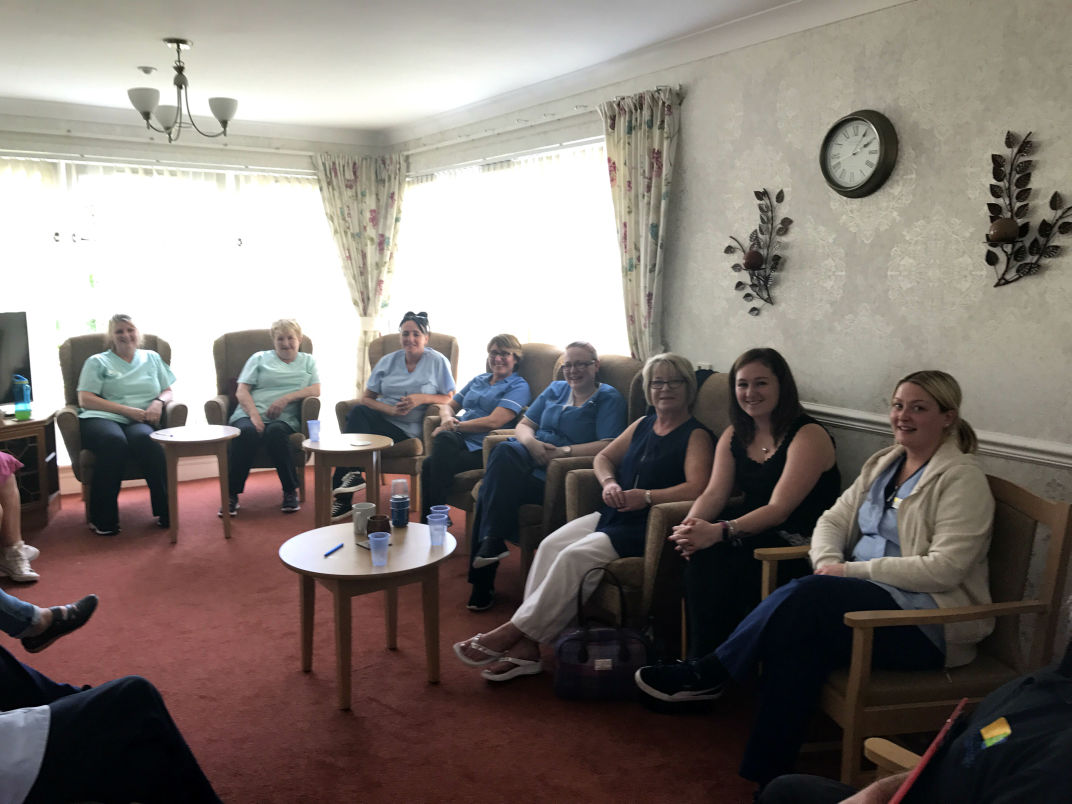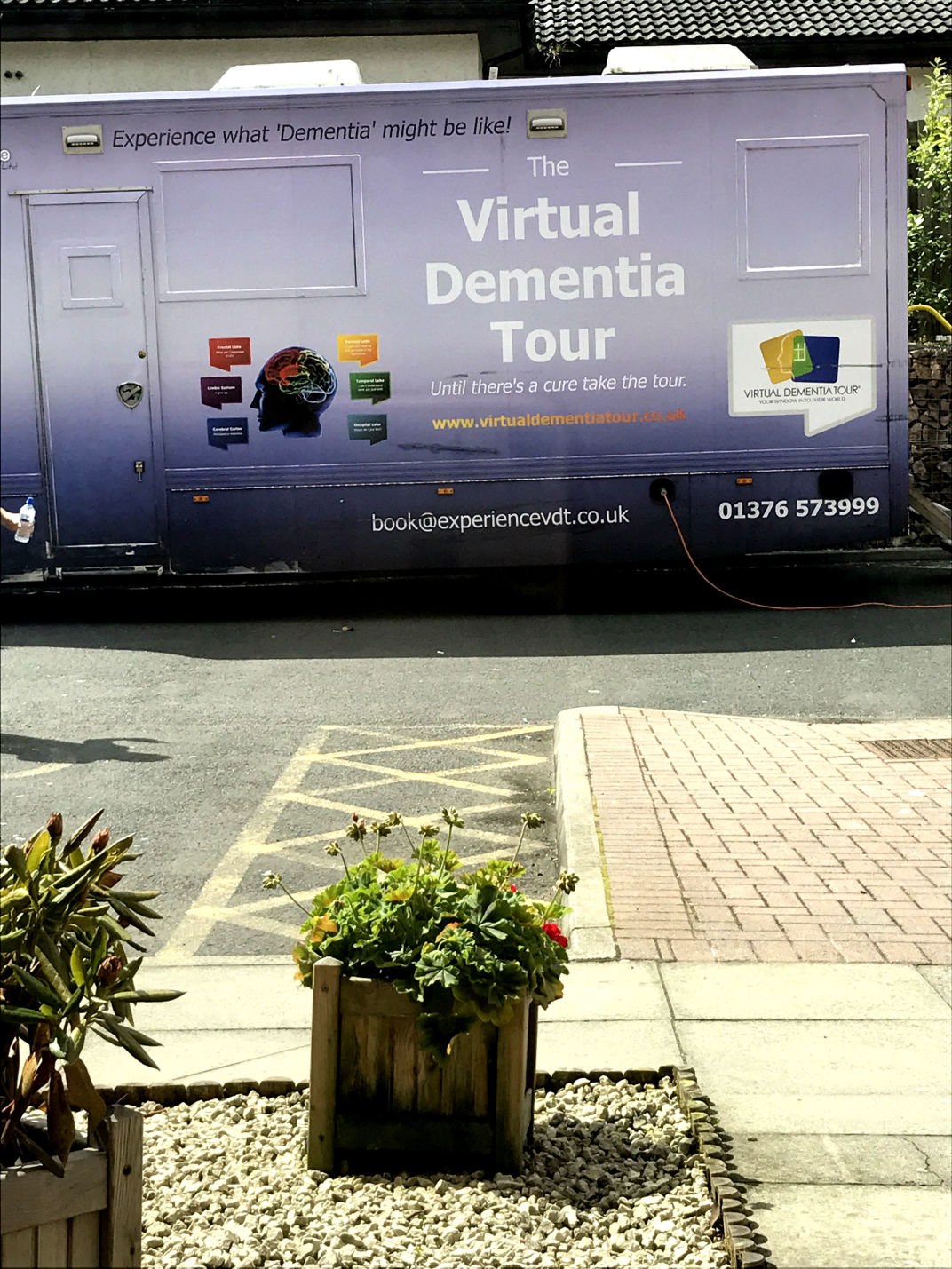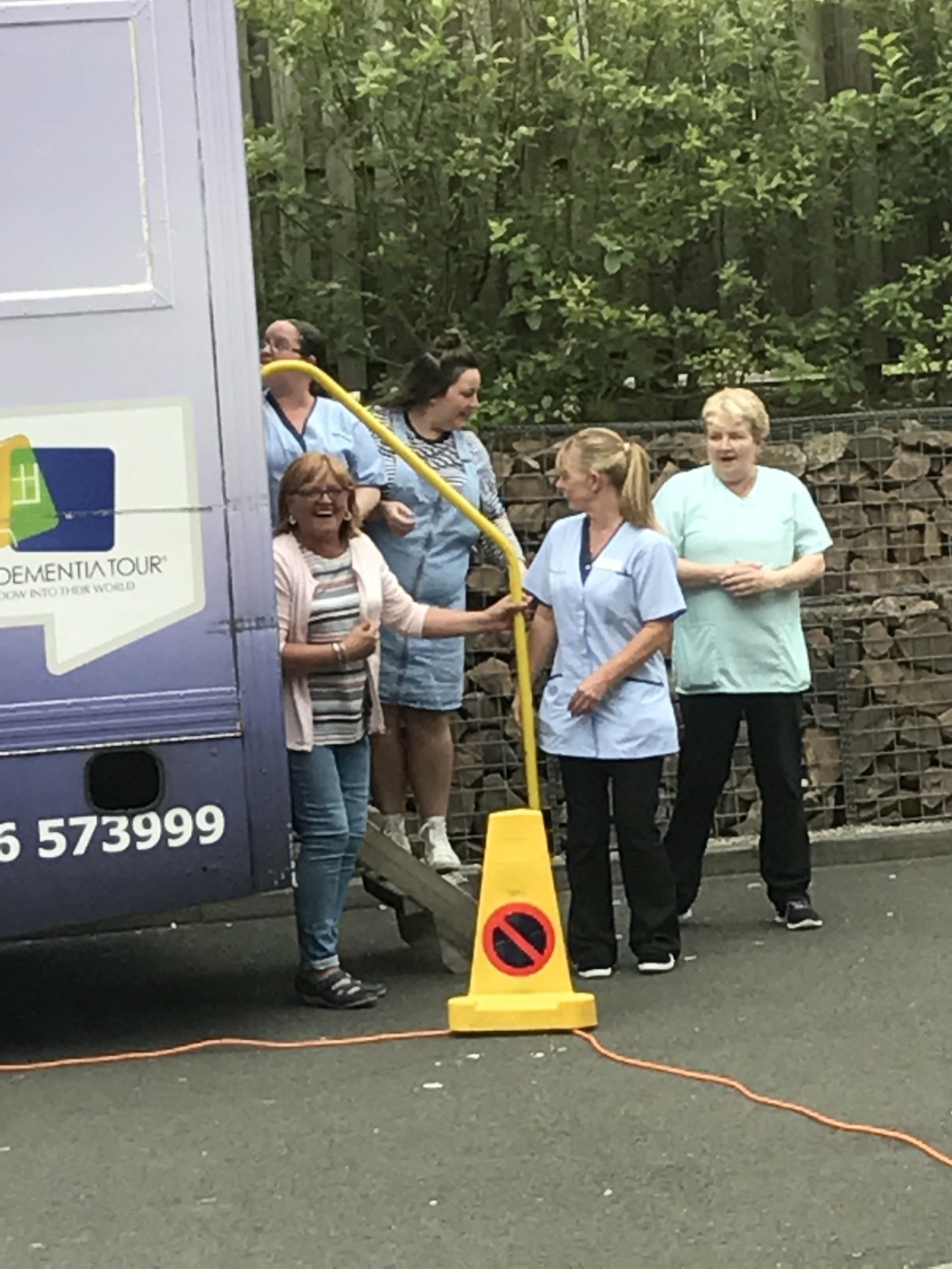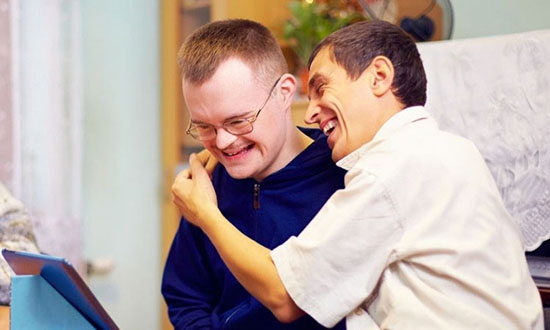Larkfield View care home recently carried out their first Virtual Dementia Tour; a scientifically proven method of building a greater understanding of dementia
Staff at the care home gained a real insight of how it feels to experience the physical and mental challenges of dementia, giving them a broader knowledge of the symptoms and the powerful effect it can have on a person’s senses.
There are 850,000 people with dementia living in the UK, with numbers set to rise to over 1 million by 2025, and soaring to 2 million by 2051. 225,000 people will develop dementia this year, that’s one person every three minutes, and approximately 70 per cent of people in care homes have dementia or severe memory problems.
Provided by Training2Care, the aim of the Virtual Dementia Tour is to take away people's primary senses, to let them experience and understand the fear and frustration dementia sufferers go through on a daily basis.
The experience has shown staff at Larkfield View, that a person with dementia is not challenging or aggressive, but could actually be feeling; frustrated, fearful or stressed; lonely or suffering from pain and discomfort; ignored, overlooked and not in control of their life.
The Virtual Dementia Tour showed employees that trying to move around and carry out everyday tasks can be a challenge for someone with dementia, and gave them an idea of the physical and mental problems that someone living with dementia experiences; and how ‘we’, as people with healthy brains can learn to make sense of their behaviour, and be more understanding, empathic and knowledgeable about the symptoms of the disorder.
Glenn Knight, chief executive of Training2Care previously said of the tour:“People experience absolutely everything that dementia sufferers go through. We put insoles into their shoes to represent peripheral neuropathy where the nerve endings die in your feet and in your hands. It makes people with dementia, elderly people, and especially people with diabetes walk with what's known as a shuffling gait.We give people a sense of macular degeneration, peripheral vision loss through glasses and presbyobia which happens to all of us after 40. Then we put sounds into people's headsets at the right volume for people with dementia because they hear at slightly higher volumes but they also lose the ability to block out sounds. Add all these together, this causes the reaction of sub-vocalisation, humming, laughing, shuffling gape, talking to yourself out loud and talking about what you are thinking."
Managing Director of Holmes Care Group, Sharifa Lakhani commented “The Virtual Dementia Tour is an influential way for our employees to understand what people with dementia experience every day. It provides us with an opportunity to comprehend what we can do to keep our loved ones as healthy as possible, and educe, delay or prevent symptoms of dementia. It also helps us to improve practices within our homes and enhances the quality of care that we provide."
 Virtual Dementia Tour debreif
Virtual Dementia Tour debreif
 Virtual Dementia Tour Bus
Virtual Dementia Tour Bus
 VDT Training at Larkfield View
VDT Training at Larkfield View
Request more Information





